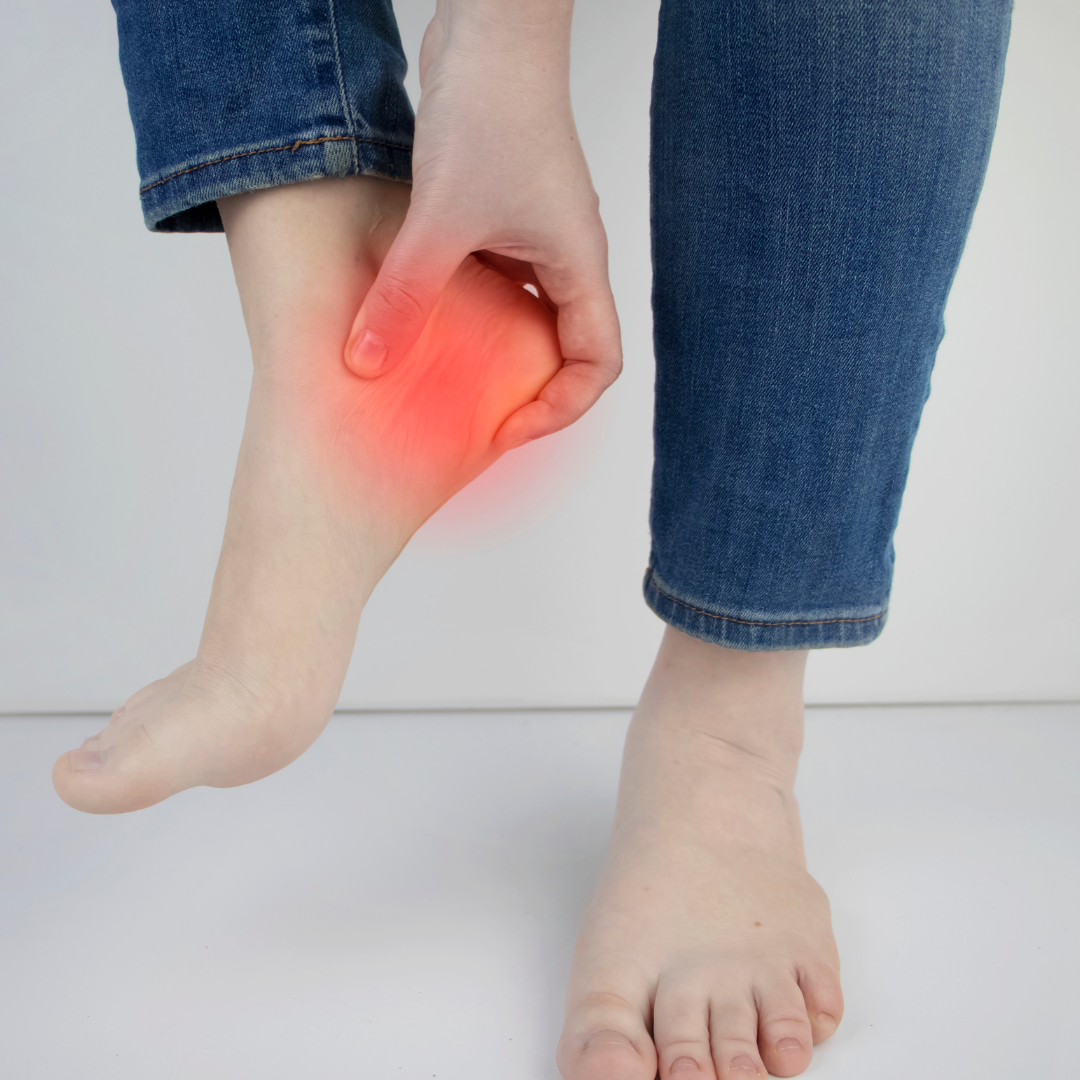-
Good News for People with Chronic Heel Pain!

A twitch of pain somewhere in your foot is one thing – brief and tolerable. Thank goodness it goes away.
Heel pain that doesn’t go away is an entirely different matter. We’re talking about the heel pain that greets you like a knife when you step out of bed every morning. The kind of intense pain that makes you cry out, perhaps with a few choice words you didn’t mean to say. This kind of pain requires attention from Kentlands Foot and Ankle Center’s board-certified podiatrist, Dr. Jon M. Sherman, because it’s not likely to get better on its own.
Plantar fasciitis, explained!
The medical term for chronic heel pain is plantar fasciitis. Any medical word with the suffix “-itis” means “inflammation.” In this case, it’s the plantar fascia that’s inflamed. The plantar fascia is a large, thick ligament that runs along the bottom of your foot, connecting the calcaneus (heel bone) to your toes. It’s easily inflamed under some circumstances:
- You have a job that requires you to be on your feet for much of the day, such as a waiter, nurse, or urban mail carrier.
- You’re a runner or walker who’s recently increased their mileage, pace, or distance.
- You participate in other athletic activities, such as ballet, that put a lot of stress on your feet.
- You’re carrying some extra pounds, which puts undue stress on your feet.
- You have pre-existing issues with your foot anatomy, such as flatfoot or high arches.
- You’re over 40: The older you are, the more likely you will develop plantar fasciitis.
The pain you don’t have to live with
Fortunately, we have many effective treatments that soothe the pain of plantar fasciitis. Dr. Sherman will likely start with conservative approaches, including taking a break from any activity that hurts, performing stretching exercises, icing, taking anti-inflammatory medications, wearing custom orthotics, and getting steroid injections. Often, the best treatment involves a combination of all these.
Other treatment options include non-invasive shockwave therapy (ESWT, laser light therapy/cold laser, and physical therapy. Surgery for plantar fasciitis is a possibility but not a common one.
The key to successful plantar fasciitis treatment is getting it promptly. Don’t wait. We encourage residents of Montgomery County to consult Dr. Sherman sooner rather than later for a full examination and assessment of their heel pain. Call 301-330-5666 or contact us online for an appointment at our Gaithersburg podiatry office.
RECENT POSTS
categories
- Uncategorized
- Featured Articles
- Foot Disorders
- Broken Ankle
- Broken Toe
- Fracture
- Foot Health
- Foot Care
- Arthritis
- Foot Pain
- Skin Cancer
- Podiatry Appointment
- Custom Orthotics
- Podiatrist
- Diabetes
- Gout
- Heart Health
- National Nutrition Month
- National Foot Health Awareness Month
- Foot Safety
- Foot and Ankle Injuries
- Falls Prevention
- Chronic Heel Pain
- Shoes
- Laser Therapy
- Quoted
- Physical Therapy
- KeryFlex
- Sweat
- Summer Foot Care
- Sports Injury
- ESWT
- Fungal Toenails
- Bunion
- Plantar Fasciitis
- PinPointe Laser


